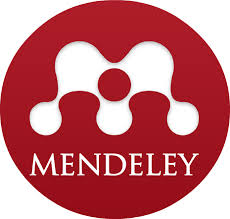Strategi inovatif dalam pendidikan anak usia dini: Mengurangi egosentrisme melalui permainan tradisional berbasis STEAM
DOI:
https://doi.org/10.24903/jw.v10i1.2043Abstract
Early childhood education (ECE) plays a crucial role in shaping the cognitive, social, and emotional development of children. One of the main challenges at this stage is egocentrism, defined as the inability of children to understand perspectives other than their own, which can hinder the development of empathy and social skills. This study aims to examine an innovative strategy to reduce egocentrism among children aged 4 to 6 years through traditional games based on STEAM principles (Science, Technology, Engineering, Arts, and Mathematics), specifically the traditional game of Engklek, which is rich in cultural and character-building values. The research employed a descriptive quantitative approach with a total sample of 311 kindergarten children from Madura, East Java. Data were collected through observational checklists focusing on egocentric behaviors and social character during gameplay sessions consisting of three phases: preparation, gameplay, and reflection. The results demonstrate that Engklek, when integrated with STEAM principles, effectively enhances four key character indicators: tolerance, discipline, self-control, and empathy. The overall average score significantly increased from 2.33 to 3.55 after the intervention, indicating a reduction in egocentric behavior and an improvement in social awareness among the children. This game not only teaches children to follow rules and take turns but also fosters critical thinking and collaboration skills within a joyful and contextual learning environment. These findings align with existing literature that emphasizes the importance of integrating local cultural values and STEAM principles in character education for early childhood. This study offers important implications for educators and policymakers to develop culturally responsive early childhood curricula that integrate traditional games with STEAM-based learning and to provide training for teachers to optimize educational media that support character strengthening and social skills development. Consequently, early childhood education can become more holistic, humane, and relevant to children's developmental needs and contemporary challenges
Downloads
Published
How to Cite
Issue
Section
License
Copyright (c) 2025 Alfina Citrasukmawati, Wisnu Kristanto

This work is licensed under a Creative Commons Attribution-ShareAlike 4.0 International License.
Authors retain copyright and grant the journal right of first publication with the work simultaneously licensed under a Creative Commons Attribution 4.0 International License that allows others to share the work with an acknowledgement of the work's authorship and initial publication in this journal.









